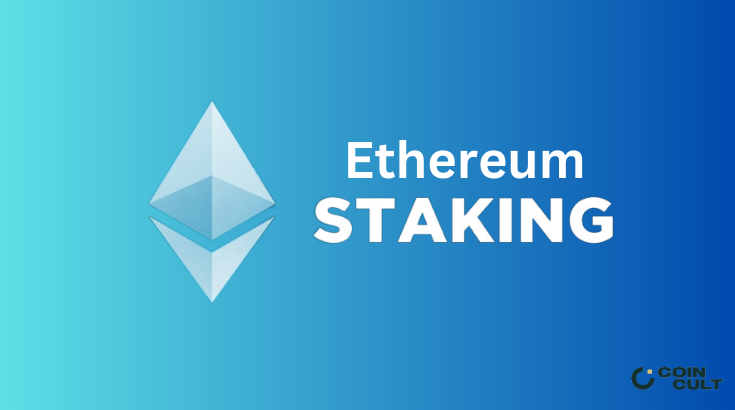
Since the Shapella upgrade in April, the volume of staked Ethereum has continuously reached new heights, surpassing an impressive milestone in June with over 23 million Ether locked.
On April 12, a significant update known as the Shapella hard fork occurred in the Ethereum network. The update allowed validators to withdraw their staked ETH from the Beacon Chain, which serves as the foundation for Ethereum 2.0.
Before the upgrade, validators were required to commit their ETH indefinitely, which posed a risk for specific users. However, the Shapella upgrade eliminated this risk and allowed users to stake and unstack their ETH at their convenience.
As a result, there was a significant increase in staking activity, as more users became willing to participate in securing the network and earning rewards.
An analytics firm Nansen revealed that the total amount of staked ETH reached 23.3 million as of June 27, with a value of $43.1 billion at the time. It shows approximately 20% of the current supply of ETH, which is approximately $220 billion.
In contrast, Solana (SOL), another blockchain platform utilizing staking, presents an impressive staking ratio of 70.58%. Dave Weisberger, the CEO of CoinRoutes—a renowned algorithmic-trading platform has expressed positive sentiments regarding the Shapella upgrade’s impact on Ethereum:
The Shanghai upgrade essentially eliminated this risk by allowing users to stake and unstake at will. As a result of this de-risking, we’re seeing a surge in staked ether — and, as expected, the network is quickly catching up to rival chains such as Solana in terms of percentage of the native token being staked on the network. This is a very healthy sign for Ethereum.
Staking Faces Regulatory Challenges In The U.S.
While Staking is gaining popularity among Ethereum users. However, it is encountering regulatory hurdles in the United States due to the Securities and Exchange Commission (SEC) cracking down on crypto firms that offer staking services.
Furthermore, The Securities and Exchange Commission (SEC) views staking as a type of securities offering that necessitates the appropriate license and registration. In February, Kraken, a cryptocurrency exchange, reached an agreement with the SEC and agreed to pay $30 million to settle with the SEC and closed its staking services for U.S. clients.
Recently, Coinbase, a prominent crypto exchange, faced potential legal action from the SEC due to its proposed staking program. This initiative aimed to provide users the opportunity to earn interest in their ETH holdings. Coinbase contended that its initiative did not involve securities offering and expressed concerns over the SEC’s perceived encroachment of authority.
Furthermore, the U.S. stands as the largest market for Ethereum node operators, hosting a substantial 48% of all the validators on the network. The potential impact of SEC’s persistent pursuit of a forceful stance on staking looms over Ethereum’s long-term growth and security.
Related Reading | Coinbase Credit Gives $50M Loan To Hut 8 For Bitcoin Treasury
Ethereum is currently in the process of transitioning from its current proof-of-work (PoW) consensus mechanism, which relies on miners to validate transactions, to a proof-of-stake (PoS) system. The PoS approach involves validators staking their ETH instead. This change is anticipated to enhance Ethereum’s scalability, security, and energy efficiency.








